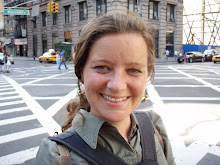Beirut Brief - May 15
CITY AND MOST RECENT EVENTS:
Calm seems to have returned to the city. More road blocks have been lifted and the highway to Damascus (the border crossing at Masnaa) and airport road have been open.
Last night the Minister of Information, explained that the government agreed to rescind the decision, which triggered last week’s violent conflict. After the statement was made around 11 pm, celebratory gunfire erupted throughout Beirut. Supporters of the opposition celebrated a major victory for the opposition.
POLITICS:
Opposition: Late this morning, the deputy secretary general of Hezbollah, made a televised conference seemed positive that the competing parties would be able to reach a political agreement. He said that the opposition would “return things” to normal once the political leaders of the government and opposition went into talks to negotiate a solution for a 17 month long political stand off.
March 14: The government is conceding to the opposition’s demands for the sake of “greater national interest”, explained begrudgingly the Information Minister. The recent events are a serious blow to the government and its political supporters. Humiliated, their speeches are still filled with anger. Statements resound dismay at the way Hezbollah and its supporters used violence and weapons to get its way.
ARAB LEAGUE:
Arab League Ministers arrived in Beirut to intervene, deescalate and ultimately halt the fighting, which have resulted in scores of dead (AP: 81). Fearful that the situation would spin out of control, the Arab league ministers provided a platform for the competing political factions to go into talks.
These could start as early as Monday and will be hosted by the Qatari government in Doha. Essentially, the Lebanese saga will be put on hold until a solution is reached in the Gulf next week.
TALKS:
The talks would cover the following points, which have been put on hold during the 17 month political stalemate:
* How to share power in the cabinet, ie. work out a new formula of sectarian based posts
* Details of a new parliamentary law which would give the opposition greater representation
AIRPORT:
Opposition has agreed to the open up the airport road, hence airport activity can resume.
As of this afternoon/today there will be only incoming flights, nothing outgoing.
Tomorrow, regular flight patterns are due to resume.


